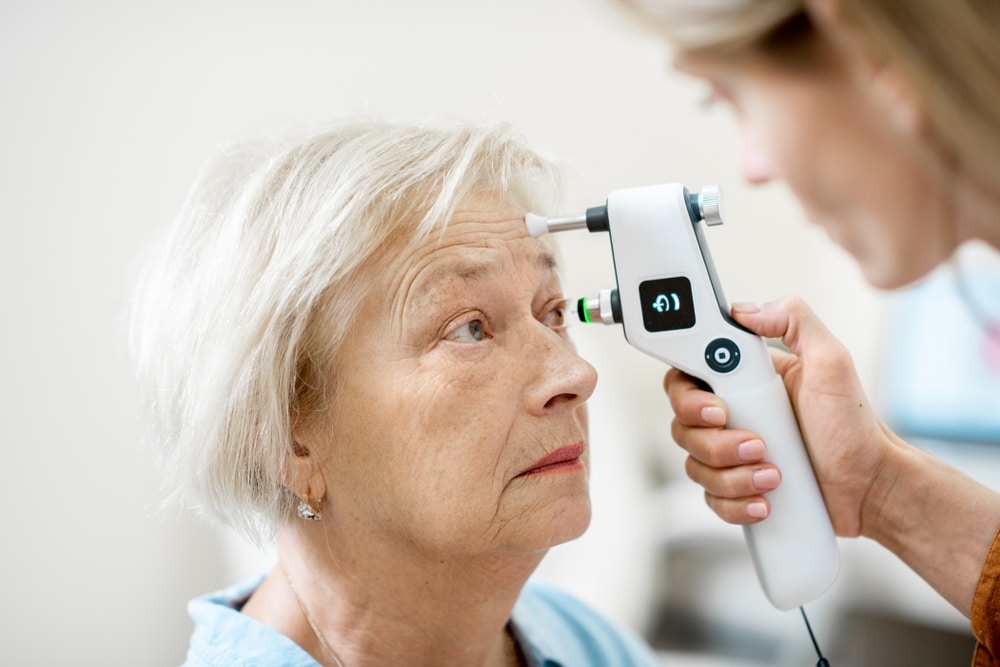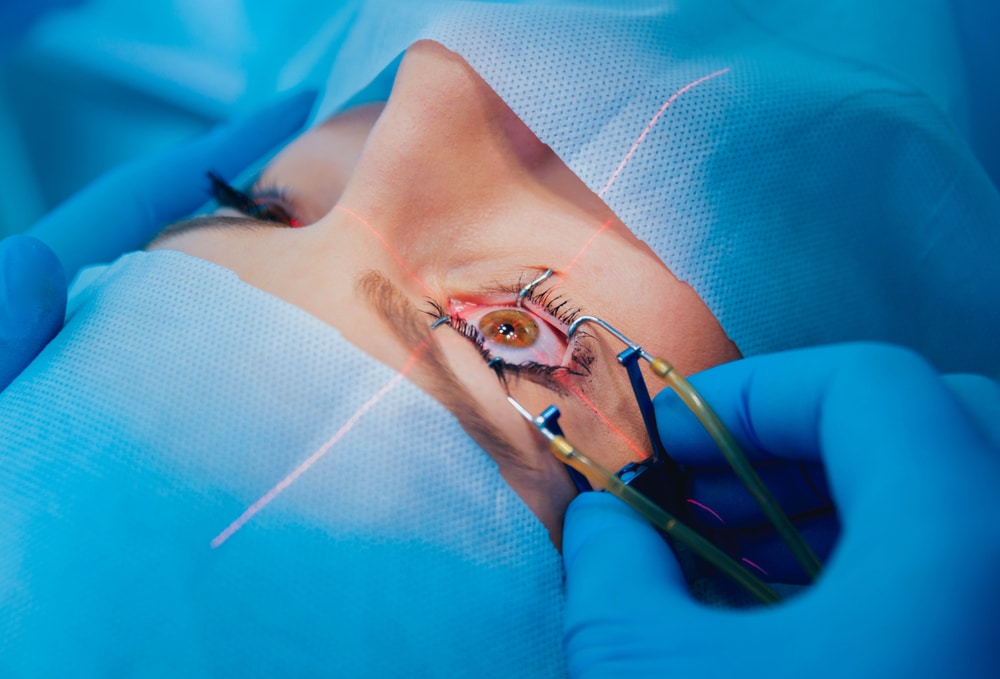Medically Reviewed by: Yasir Ahmed, M.D.
Who is a Candidate for Corneal Transplant?
Who is a candidate for corneal transplant? While corneal transplant surgery isn’t the right option for everybody, it is one of the most common and successful forms of transplant surgeries. If you’re looking to restore your vision after corneal disease or a traumatic injury, you may be a good candidate. The experts at Eye Center of Texas are here to walk you through the techniques and risks of a corneal transplant in Houston.
Why would someone need a cornea transplant?
A corneal transplant replaces the diseased or scarred part of your cornea with healthy tissue from a donor. It is generally recommended for someone who has a corneal disease that cannot be treated with a less-invasive treatment — like glasses or medication — or for someone whose cornea has suffered irreversible damage.
If you have or had any of the following conditions, you may qualify for a transplant:
- Scarring from infection (eye herpes or fungal keratitis)
- Scarring from eyelashes rubbing against the cornea (trichiasis)
- Inherited eye diseases (Fuchs’ dystrophy)
- Corneal ulcers or “sores”
- Corneal abrasion
- Corneal rejection from first surgery
- Advanced keratoconus
- Rare complications from LASIK surgery
- Chemical burns of the cornea
- Excessive corneal swelling
- Organ rejection from previous corneal transplant
- Cataract surgical complications
Keep reading: Cornea damage symptoms
Common Corneal Transplant Surgical Techniques
Full Thickness Corneal Transplant
In a full thickness corneal transplant, also known as a penetrating keratoplasty (PK), the surgeon will replace all of the layers of the cornea with tissue from a donor. The procedure only takes 30 to 60 minutes to perform. But since it is the most invasive, as you are replacing the entire cornea, the healing time for this procedure is longer. A full thickness corneal transplant can take up to one year to achieve full vision.
Partial Thickness Corneal Transplant (DSEK, DMEK, DALK)
Partial thickness corneal transplant surgery is exactly as it sounds. The surgeon will only replace certain layers of your cornea tissue depending on where the damaged tissue is. You’ll be able to return to low-impact activities about 1-2 weeks after surgery but your vision might still be blurry.
Back Layer Corneal Transplant
This is also referred to as an endothelial keratoplasty (EK) and is a procedure done to remove and replace unhealthy tissue from the back layer of the cornea. Full recovery for a back layer corneal transplant is about 4-6 months.
What is the success rate of a corneal transplant?
As mentioned, corneal transplant surgery is one of the most successful of all tissue transplants in America with the success rate landing at 90% in the first year. Corneal transplants can last around 10 years before needing to be replaced but may fail earlier. If the graft does fail, a corneal transplant can be repeated. For a majority of patients, vision after corneal transplant will improve after a year of healing and repeated transplants tend to yield good results.
If you are still struggling with acute vision loss after your cornea transplant has fully healed, you may be a good PRK or LASIK eye surgery candidate.
What are the risks of a cornea transplant?
Although this is a relatively safe and effective surgery, as with any surgery, there are still risks. Your ophthalmologist will walk you through which surgical technique they believe to be the best fit for your case as well as the risks and what to expect during recovery. You can lessen your risk and recovery time by following your doctor’s recommendations, avoid rubbing your eyes, and refrain from high-impact activities that could damage your cornea, including swimming.
The risks of a cornea transplant include:
- Infection
- Cataracts
- Bleeding in the eye
- Prolonged or problematic healing
- Anesthesia complications
- Refractive errors requiring glasses
- General surgical complications
- Organ tissue rejection
- Eye problems such as glaucoma, macular degeneration, detached retina, and astigmatism
Signs of organ rejection
Rejection of the donated cornea occurs when the immune system recognizes the donated tissue as foreign and begins to destroy it. It only occurs in about 18-21% of patients and your risk depends on several factors. One of which being whether you comply with your medication protocol following the transplant.
Tell your doctor if you notice any of the following symptoms, even one as small as “my cornea is red,” immediately. If addressed quickly, you may be able to reverse the rejection and save the transplanted cornea.
- Eye pain
- Sensitivity to light
- Red eyes
- Cloudy or hazy vision
- Infection
- Bleeding
Corneal transplant surgery at Eye Center of Texas
If you’ve decided to inquire about it after learning who is a candidate for corneal transplant and are looking for ophthalmologists in Houston, trust Eye Center of Texas. We have the best corneal transplant surgeons and are recommended by more than 300 Houston eye doctors including Dr. Yasir Ahmed who specializes in cornea surgeries. Our sub-specialty trained surgeons stay on the cutting edge of surgical and clinical procedures including corneal transplants.
To learn more about whether corneal transplant surgery is right for you, contact us today at 713-797-1010 or request an appointment online.
More Helpful Articles by Eye Center of Texas:
- What Causes Presbyopia?
- The Top Benefits of Femtosecond Laser Cataract Surgery
- Expectations: Your Vision After Getting Cataract Surgery in One Eye
- Your Guide on What to Expect After LASIK
- What Causes Macular Degeneration?
Related Articles
Financing Options Available
Apply today to find a financing option that meets your needs.
Our Locations
Houston/Bellaire
6565 W. Loop S., Suite 650Bellaire, TX 77401
Medical Office:
713-797-1010
Medical Fax:
713-357-7276
LASIK/Near Vision:
Office: 713-395-1515
Fax: 713-357-7278
Pasadena
4415 Crenshaw RoadPasadena, TX 77504
Medical Office:
281-977-8800
Medical Fax:
281-977-8877
Sugar Land
15200 S.W. Freeway, Suite 130Sugar Land, TX 77478
Medical Office:
281-277-1010
Medical Fax:
281-277-4504
Clear Lake
455 E. Medical Center Blvd., Suite 110Webster, TX 77598
Medical Office:
281-332-1397
Medical Fax:
281-282-9152
Katy
Greenhouse Medical Plaza2051 Greenhouse Road, Suite 110
Houston, TX 77084
Medical Office:
346-547-7070
Medical Fax:
281-214-2971
The Woodlands/Conroe
100 Medical Center Blvd., Suite 118Conroe, TX 77304
Medical Office:
936-647-1610
Medical Fax:
936-647-1620


